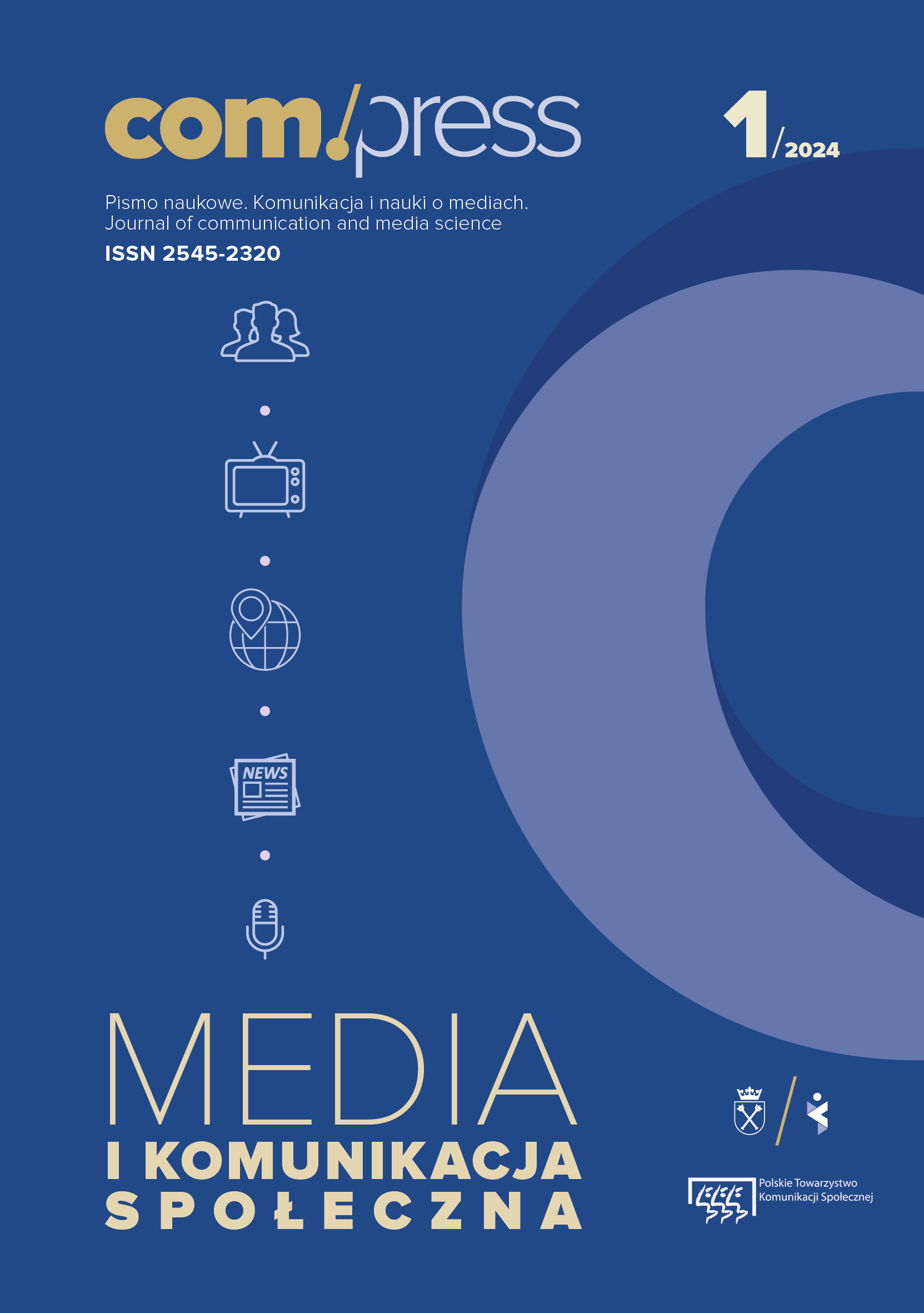Music generated by artificial intelligence – the perspective of Generation Z representatives
DOI:
https://doi.org/10.51480/compress.2024.7-1.703Keywords:
artificial intelligence, AI, music, music generated by artificial intelligenceAbstract
Songs developed using artificial intelligence raise numerous controversies, both ethically and legally. The aim of the article is to determine what percentage of respondents had contact with music generated by AI, which is intended to imitate the work of famous artists, and what associations it evokes. The empirical part of the article presents the results of a study conducted on a sample of 118 people. According to the data obtained through a survey, 83.9% of respondents were aware of the existence of works composed by artificial intelligence that were intended to imitate the work of famous artists. Participants had diverse opinions on the music generated by artificial intelligence. Many of them described it as strange, disturbing and unethical. Nevertheless, there were opinions pointing to its curiosity and future potential.
References
Aswad, J. (2023). Grammys Reduce Four Top Awards – Album, Song, Record of the Year and Best New Artist – From 10 to Eight Nominees. Pobrane z: https://variety.com/2023/music/news/grammys-reduce-four-top-awards-from-10-to-eight-nominees-album-song-new-artist-1235646433/ (21.01.2024). Chen, B., Wu, Z., Zhao, R. (2023). From fiction to fact: the growing role of generative AI in business and finance. Journal of Chinese Economic and Business Studies, 21(4), 471–496. https://doi.org/10.1080/14765284.2023.2245279
Coeckelbergh, M. (2017). Can machines create art? Philosophy & Technology, 30(3), 285–303. https://doi.org/10.1007/s13347-016-0231-5
Fortis, S. (2023). AI can be a ‘creative amplifier’ – Grammy chief exec Harvey Mason Jr. Pobrane z: https://cointelegraph.com/news/ai-grammys-recording-academy-ceo-harvey-mason-jr (21.01.2024). Kozłowski, K. (2023). Bez AI nowa piosenka The Beatles by nie powstała. Pobrane z: https://antyweb.pl/the-beatles-nowa-piosenka-now-and-then-john-lennon-glos-ai-sztuczna-inteligencja (dostęp 21.01.2024).
Leight, E. (2023). Will AI Be Used to Raise Musicians From the Dead?. Pobrane z: https://www.billboard.com/pro/ai-bring-back-dead-artists-musicians-estate-managers/ (21.01.2024). Mizerska, K. (2023). Powstanie kolejna filmowa biografia Édith Piaf. Tym razem z wykorzystaniem sztucznej inteligencji. Pobrane z: https://zwierciadlo.pl/kultura/537218,1,powstanie-kolejna-filmowa-biografia-dith-piaf-tym-razem-z-wykorzystaniem-sztucznej-inteligencji.read (21.01.2024).
Mori, M., MacDorman, K. F., Kageki, N. (2012). The Uncanny Valley [From the Field]. IEEE Robotics & Automation Magazine, 19(2), 98–100. https://doi.org/10.1109/MRA.2012.2192811.
Moura, T. F., Maw, C. (2021). Artificial intelligence became Beethoven: how do listeners and music professionals perceive artificially composed music?. Journal of Consumer Marketing, 38(2), 137-146. https://doi.org/10.1108/JCM-02-2020-3671.
Over half of musicians will conceal AI use. Pobrane z: https://pirate.com/en/blog/over-half-of-musicians-will-conceal-ai-use/ (21.01.2024).
Pometsey, O. (2019). The strange truth behind the Amy Winehouse hologram tour. Pobrane z: https://www.gq-magazine.co.uk/article/amy-winehouse-hologram-tour (21.01.2024).
Rentfrow, P. J., Gosling, S. D. (2003). The do re mi’s of everyday life: The structure and personality correlates of music preferences. Journal of Personality and Social Psychology, 84(6), 1236–1256. https://doi.org/10.1037/0022-3514.84.6.1236.
Tubadji, A., Huang, H., Webber, D. J. (2021). Cultural proximity bias in AI-acceptability: The importance of being human. Technological Forecasting and Social Change, 173, 121100. https://doi.org/10.1016/j.techfore.2021.121100. Wyrzykowska, K. (2015). Od kontestacji do estetyzacji życia codziennego. Kilka uwag o znaczeniu i funkcji muzyki w życiu młodzieży. Pogranicze. Studia Społeczne, 26, 131–149. https://doi.org/10.15290/pss.2015.26.08.
Downloads
Published
How to Cite
Issue
Section
License
Copyright (c) 2024 Polish Communication Association

This work is licensed under a Creative Commons Attribution-ShareAlike 4.0 International License.
Content of the articles is licensed under a Creative Commons Attribution 4.0 International license





